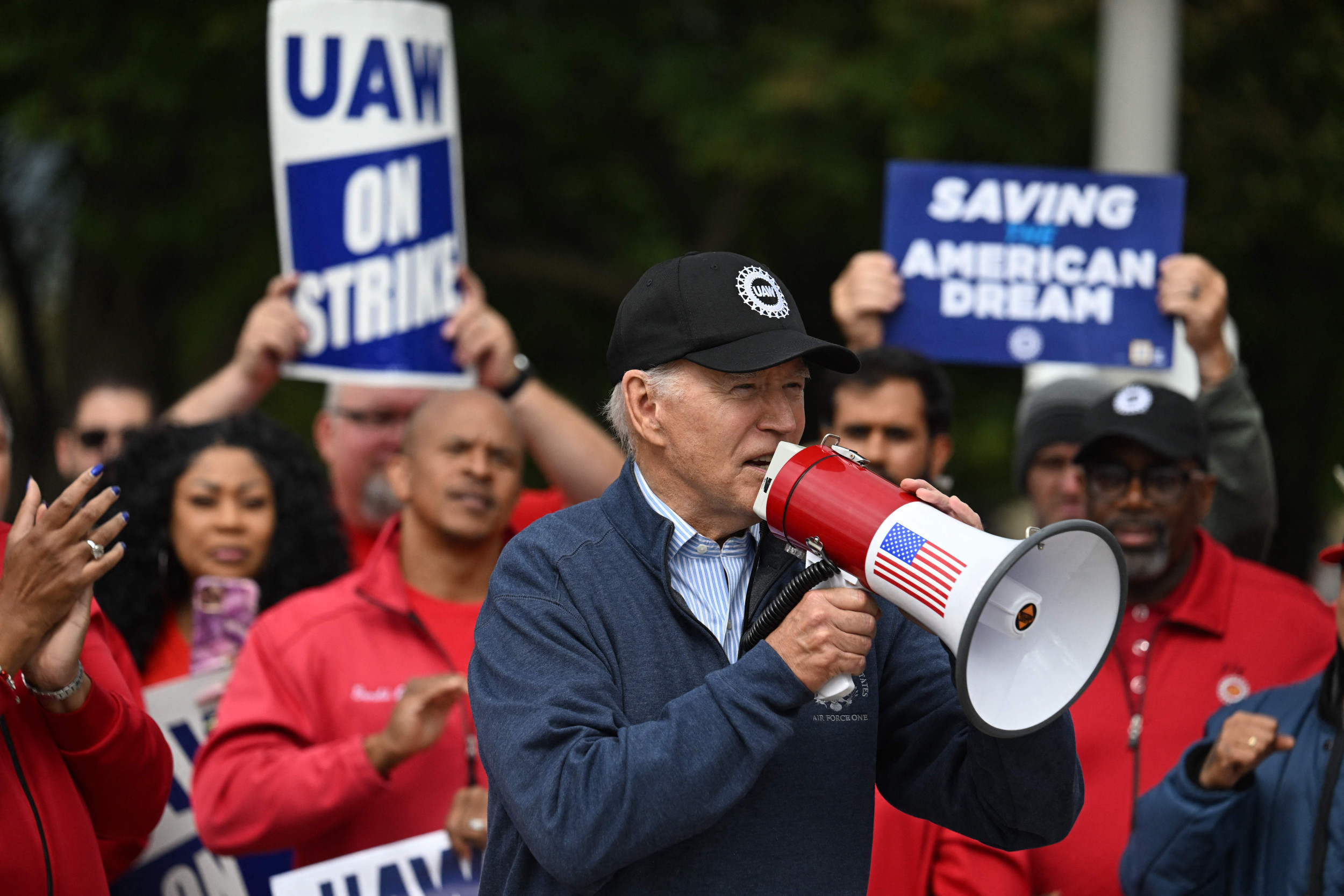Candidates understandably want to appeal to workers—after all they can’t get elected without their votes. Yet, maybe because for many Washington politicians the most visible representations of “workers” are the multi-million dollar union headquarters and PAC contributions they receive from those addresses, many candidates for office mistakenly believe the way to win working class votes is to support the agenda of the union officials who occupy those buildings.
The truth is, much of what Big Labor bosses advocate is directly contrary to employees’ interests and undermines their freedom.
Union bosses and their political allies may wish it was otherwise, but the fact is most workers are not only nonunion, but happily so.
Only one in 10 American workers, and just 6 percent of those in the private sector, are currently unionized. In a national poll last year, those non-union workers were asked if they were interested in joining a labor union and the answer was a resounding NO, with a sizable majority (58 percent) “not interested at all” and barely one in 10 “strongly interested” in union affiliation.
Since unions claim to be majoritarian organizations, those numbers show why it is unsurprising that union organizers have been largely unsuccessful in convincing workers to join their ranks.
Meanwhile, workers are increasingly seeking to remove existing union “representation.” The Biden National Labor Relations Board’s own statistics showing three consecutive years of increased worker-filed union decertification petitions. Cynically, the Biden NLRB’s response has been to make it easier for union officials to block such votes from actually happening.
Yet that is hardly the only example of union bosses and their allies pursuing an agenda that is explicitly anti-worker.
Take the “PRO-Act,” Big Labor’s top legislative priority in Congress which is a giant wishlist of new government-granted union powers, almost all of which undermine the rights of individual employees.
The PRO-Act would overturn all 27 current state Right to Work laws by federal fiat, granting union officials the power to threaten workers who aren’t even union members that they must pay up or be fired. Unsurprisingly, stripping workers of their choice over whether or not to financially support a union is unpopular, especially among workers.
The last time Gallup polled voters about Right to Work it found strong bipartisan support. When asked if they would vote for Right to Work, 65 percent of Democrats, 77 percent of Independents, and 74 percent of Republicans said yes.
State polls find similar support for Right to Work. Michigan, where presidents Biden and Donald Trump visited this week to appeal to autoworkers, recently passed a bill repealing its decade-old Right to Work law, but not because voters supported that. Not only did 74 percent of all voters oppose bringing back forced dues, but 71 percent of Michiganders from union households were against Right to Work repeal.
Other provisions of the PRO-Act show the vast divide between what union bosses advocate for and what is best for rank-and-file workers.
The PRO-Act also authorizes “card check” unionization, bypassing secret ballot elections in favor of a process where union organizers pressure workers into signing cards to be counted as “votes.” Yet even the AFL-CIO has admitted that these cards don’t represent employees’ actual wishes and are frequently just signed to “get the union off their backs.”
Another PRO-Act provision would allow the forced unionization of independent contractors and freelancers, who polls show often choose such work precisely for the flexibility that one-size-fits-all unionization cannot provide. Other parts of the PRO-Act would, as the Biden NLRB is already doing, block employees from voting out unwanted unions that a majority of workers oppose.
Because of his support for the PRO-Act, union officials overwhelmingly supported Biden in 2020, even as his policies directly put their members’ jobs at risk. One of Biden’s first actions in office was an executive order cancelling the Keystone Pipeline and therefore eliminating thousands of union jobs. His support for a forced transition to electric vehicles means slashed hours for autoworkers who were previously building traditional gas-powered vehicles, a root cause of the ongoing UAW strike.
Example after example shows that unions and employees have starkly different priorities. Unions that seek to represent workers should have to do so by voluntary means, not by undermining workers’ freedoms as they currently do.
Supporting workers, not union bosses, means opposing coercive power grabs like those in the PRO-Act and supporting Right to Work laws that simply trust workers to choose for themselves.
It might not generate union PAC contributions, but politicians who want to court workers’ votes would do well to support their actual priorities, rather than granting union bosses even more coercive powers.
Mark Mix is president of the National Right to Work Legal Defense Foundation.
The views expressed in this article are the writer’s own.

